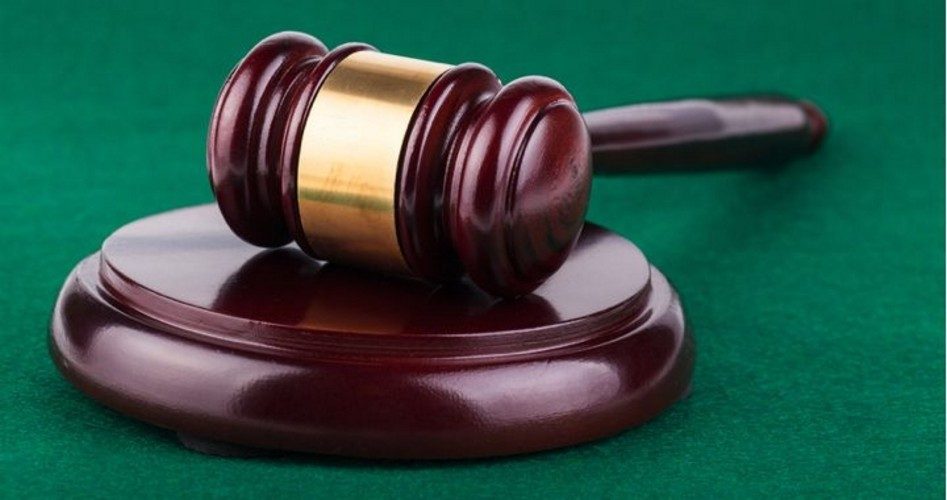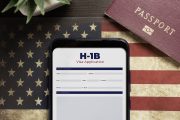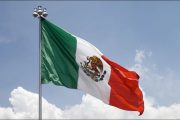
On January 28, U.S. District Court Judge Ann Donnelly ruled in favor of a petition filed by the American Civil Liberties Union (ACLU) on behalf of two Iraqi men who were detained at John F. Kennedy International Airport the previous day under an executive order signed by President Trump. In her ruling, Donnelly wrote that “there is imminent danger that, absent the stay of removal, there will be substantial and irreparable injury to refugees, visa-holders, and other individuals from nations subject” to Trump’s order.
Trump’s January 27 executive order entitled “Protecting the Nation From Foreign Terrorist Entry Into the United States” states, “In order to protect Americans, the United States must ensure that those admitted to this country do not bear hostile attitudes toward it and its founding principles.” Among the provisions that Trump made in the order was a “Suspension of Issuance of Visas and Other Immigration Benefits to Nationals of Countries of Particular Concern.”
Interestingly, since much has been written in news stories about Trump’s “ban on Muslims” entering the country, only one nation, war-ravaged Syria, is specifically mentioned in the executive order. Trump wrote:
I hereby proclaim that the entry of nationals of Syria as refugees is detrimental to the interests of the United States and thus suspend any such entry until such time as I have determined that sufficient changes have been made to the USRAP to ensure that admission of Syrian refugees is consistent with the national interest.
The mass media has made much of Trump’s 90-day ban on entry into the United States from seven predominantly Muslim countries — Iraq, Libya, Somalia, Sudan, Syria, Yemen, and Iran — without mentioning that that particular group of countries originates with H.R. 158, the Visa Waiver Program Improvement and Terrorist Travel Prevention Act of 2015, signed into law by former President Obama on December 18, 2015, as part of the Omnibus Appropriations Act of FY2016.
Trump’s executive order reads:
I hereby proclaim that the immigrant and nonimmigrant entry into the United States of aliens from countries referred to in section 217(a)(12) of the INA, 8 U.S.C. 1187(a)(12), would be detrimental to the interests of the United States, and I hereby suspend entry into the United States, as immigrants and nonimmigrants, of such persons for 90 days from the date of this order
The portion of the U.S. Code cited in the Trump order was, therefore, created by the Obama-signed law.
Despite the fact that the Obama administration created the Terrorist Travel Prevention Act that identified the same countries in the Middle East cited by Trump as “countries of concern” from which travel to the United States should be restricted, the media and many political figures have wailed unceasingly about Trump’s executive order. Senator Elizabeth Warren (D-Mass.) was among those who immediately accused Trump of religious bias, stating: “Let’s be clear: A Muslim ban by any other name is still a Muslim ban.” Senator Kamala Harris (D-Calif.) joined Warren by saying: “Make no mistake — this is a Muslim ban.” And Senator Chuck Schumer (D-N.Y.), who is partial to melodramatic language, said: “Tears are running down the cheeks of the Statue of Liberty tonight.”
Despite the protests, within 48 hours of issuing the executive order, both Trump and the Department of Homeland Security issued statements indicating that they would stand by the new policy.
On the afternoon of January 29, Trump issued a statement that said, in part:
America is a proud nation of immigrants and we will continue to show compassion to those fleeing oppression, but we will do so while protecting our own citizens and border…. We will keep it free and keep it safe, as the media knows, but refuses to say. My policy is similar to what President Obama did in 2011 when he banned visas for refugees from Iraq for six months. The seven countries named in the Executive Order are the same countries previously identified by the Obama administration as sources of terror. To be clear, this is not a Muslim ban, as the media is falsely reporting. This is not about religion — this is about terror and keeping our country safe. There are over 40 different countries worldwide that are majority Muslim that are not affected by this order.
Earlier on January 29, the Department of Homeland Security issued a longer statement affirming its intention to enforce the order, stating, in part:
The Department of Homeland Security will continue to enforce all of President Trump’s Executive Orders in a manner that ensures the safety and security of the American people. President Trump’s Executive Orders remain in place — prohibited travel will remain prohibited, and the U.S. government retains its right to revoke visas at any time if required for national security or public safety. President Trump’s Executive Order affects a minor portion of international travelers, and is a first step towards reestablishing control over America’s borders and national security.
Approximately 80 million international travelers enter the United States every year. Yesterday, less than one percent of the more than 325,000 international air travelers who arrive every day were inconvenienced while enhanced security measures were implemented. These individuals went through enhanced security screenings and are being processed for entry to the United States, consistent with our immigration laws and judicial orders.
The DHS statement also recognized Donnelly’s ruling, though not by name and without backing down from its stated intent to enforce the executive order:
The Department of Homeland Security will comply with judicial orders; faithfully enforce our immigration laws, and implement President Trump’s Executive Orders to ensure that those entering the United States do not pose a threat to our country or the American people.
Contrary to what may have been implied in media reports, Homeland Security Secretary John Kelly said in a statement on January 29 that U.S. residents who are here legally will be allowed back into the country when returning from the seven nations covered by the ban, provided that they do not have any negative information in their files. Kelly’s statement read:
In applying the provisions of the president’s executive order, I hereby deem the entry of lawful permanent residents to be in the national interest.
Accordingly, absent the receipt of significant derogatory information indicating a serious threat to public safety and welfare, lawful permanent resident status will be a dispositive factor in our case-by-case determinations.
Stephen Miller, a senior advisor to the White House, said, “Nothing in the Brooklyn judge’s [Donnelly’s] order in any way impedes or prevents the implementation of the president’s executive order which remains in full, complete and total effect.”
Related articles:
Trump’s Order Suspending Refugee Program: Racism or Balanced National Security?
Trump Executive Order to Ban Nationals of “Countries of Particular Concern”
Regarding Fake Passports for Syrians
Obama Scrapping Registration of Aliens From Mostly Muslim Nations
Sons of Middle Eastern Immigrants Recruited by Terrorist Groups
Border Patrol: Arrests of Pakistanis, Afghans Up This Year
Military Concerned About Large Numbers of Individuals From Terrorist Regions Crossing Border
Smuggling Network Brings Aliens With Terrorist Ties Across U.S. Border
Mexican Cartels Moving Terrorists Across Southern U.S. Border
Terrorist Smuggling Into U.S. a Real Concern
Pakistanis With Terrorism Ties Caught After Crossing U.S.-Mexican Border



